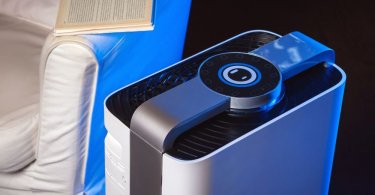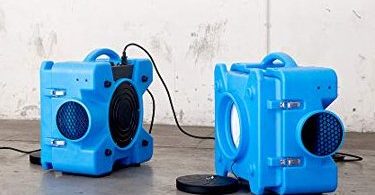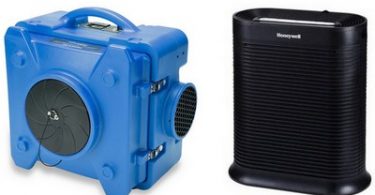
In this polluted era, when breathing clean and fresh air seems almost impossible, an air scrubber can prove to be somewhat of a blessing. But there’s one thing a lot of air scrubbers lack – a carbon filter.
These filters can take your air scrubbers to another level and prove quite useful and worth every buck.
So in this post, we’ll discuss everything about carbon filters. What are they, and how do they work? Should you be using one? Read on to know more!
What is a Carbon (Charcoal) Filter?
A carbon filter is a genius invention that can remove any odor, volatile organic compounds, and other harmful gases from the air. Unlike carbon, a typical filter media cannot trap particles such as the ones present in gases and odors.
The charcoal or carbon present in these filters usually comes from burnt wood. This charcoal then undergoes various processes to become more effective, after which it is tightly packed into a filter.
Not all carbon filters are the same, though – some are more effective than others. For instance, a filter with more carbon and smaller particles will do the job much better and quicker.
Having one of these filters in an air scrubbing device can add additional protection and keep the air smelling pleasantly fresh.
How Do Carbon Filters Work?
Before the charcoal can be used in a filter, it is first ‘activated.’ Using either steam or hot air, tiny holes are created on the carbon grains. This increases the surface area that comes in contact with the air, making the carbon several times more effective.
Many layers of activated carbon bedding make up this filter, and the thicker and heavier it is, the better.
Through a process called ‘adsorption,’ these carbon layers can trap gas molecules and harmful pollutants present in the air. We won’t get into the detailed science behind it, but here’s a rough idea of what happens.

When air passes through these layers, gases and particles of smoke and odors stick to the numerous holes created in the carbon grains.
So the filter doesn’t exactly absorb the particles within itself but makes them stick on its surface. Meanwhile, air molecules freely pass through.
After some time, though, gas particles and VOCs fill most of these holes, leaving very little or no free space for other particles.
As a result, the saturated carbon layers can no longer carry on with adsorption and lose their effectiveness. In fact, the filter can start giving out a bad odor once it’s full, and that’s your cue to replace it with a new one.
Do You Need a Carbon Filter in Your Air Scrubber?
Most industrial air scrubbers or home-based devices come with a pre-filter and a HEPA filter to ‘dry scrub’ the air. But it pays to own an air scrubber that comes with an additional filter made of carbon.
This is especially true if you’re tired of odors creeping inside your house and ruining the atmosphere. Air scrubbers with carbon filters will work like a charm to remove these odors as soon they enter their system.
Moreover, these filters are essential in homes with individuals suffering from respiratory issues. Smoke from tobacco or even cooking can trigger asthma attacks, and having an air scrubber with a carbon filter can literally prove to be a life-saver.
But sometimes, you may not know you’re breathing in harmful stuff. Odorless gases such as carbon monoxide or radon are present in every other household and can lead to deadly diseases.
Plus, VOCs released from aerosols and other household equipment can irritate the lungs and cause respiratory issues.
Taking precautionary measures to ensure good health is always the smarter move. So try fitting a carbon filter in your current air sanitization devices or get an air scrubber that comes with one.
And if you’ve got members in the house who are sensitive to smoke and irritants, these filters are an absolute must-have.
Related: Top-Rated Air Purifiers For Smokers and Air Scrubber Maintenance




